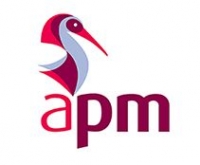David Thomson, head of external affairs at Association for Project
Management (APM), the chartered body for the project profession, provides an
insight into APM’s latest report The Golden Thread, which explores the
contribution of project management in the SME sector, as well as challenges and
future expectations for the profession.
Small and medium sized
enterprises (SMEs) play an integral part of the UK economy, and projects form
an essential part of business as usual for many. However, project management
success stories tend to focus on big budget projects and large organisations. In
this current time of uncertainty and stretched resources, the need for project
expertise to deliver projects – of all sizes and types – is greater than ever.
APM’s study reveals
that project management can play a significant contribution across the SME
sector and has the potential to galvanise change. The research in The Golden
Thread, undertaken by PwC, reveals that the SME-based project profession
contributes up to £94 billion1 to the UK annually and that SMEs employ
up to 1.3 million full-time equivalent
workers (FTEs) in project-related
roles. Many SMEs are projects themselves or part of larger project
supply chains, yet often lack the necessary resource to utilise project
expertise properly.
Increasing awareness of
project management and making it more accessible to SMEs is key to allowing
this sector to capitalise on the benefits project management offers such as:
·
stronger
execution of projects
- saving
time
- saving
money
The Golden Thread report highlights certain key challenges facing SMEs that can hinder growth including uncertainty, revenue flow and accessing the right skills.
Challenges facing SMEs:
·
Skills gaps – SME projects are
often run by managers with limited formal training in project management.
Therefore, training and guidance is needed; particularly in key processes such
as risk, change and time management. Upskilling is often a challenge as businesses
with fewer employees can find it harder to spare people for longer training
programmes. The Golden Thread
highlights a desire for ‘bite sized’ courses to create consumable chunks of
learning that employees can fit around their current job roles.
·
Uncertainty – SMEs are vulnerable
to economic and political uncertainly that can lead to delays or cancellations of
mega projects (i.e. Hinkley Point C and Crossrail). SMEs form an important part
of mega projects’ supply chains, making SMEs particularly vulnerable if
projects are delayed or cancelled.
· Revenue flow – SMEs have less of a financial buffer to cope with economic change due to tighter revenue flows and smaller workforces. Many SMEs believe transition to Brexit poses a risk as reductions in funding are passed on to local SMEs. This can lead to less money being spent on project management training and development.
Whilst awareness of
project management is growing across the SME sector - professionalisation and chartership through APM having had a positive
impact - The Golden Thread highlights the need to make the
profession more accessible, allowing SMEs to capitalise on the benefits that it
offers.
Some examples of how this could be achieved includes promoting ‘bite sized’ training courses, more sector-based knowledge sharing among SMEs and celebrating project success stories at a smaller scale.
The way forward for SMEs:
· Supply chain opportunities - Local enterprise
partnerships will continue to play a role in SME development by assisting businesses
to take advantage of local supply chains, particularly around large construction
projects. Better access and support to SMEs allows them to bid for work
resulting from mega projects, helping drive further growth among the sector and
releasing more revenue for increased employment opportunities.
·
Uptake in new industries – Project management
can provide an important contribution to upscaling productivity across
different SME subsectors. For example, the creative and media industry can
benefit from project management tools to provide structure and platforms to
work from.
· Digital – Customer demands are evolving due to advancing technology and how they access products. Embracing digital change could play significant part in SMEs winning greater market share. Update of change management techniques will be important, helping to drive business model changes and smooth the transition to new technological integration and capabilities.
Tony Mulvahill, a
consultant, coach, trainer and educator for project managers, who participated
in The Golden Thread report, says:
“The SME network know they need to support each other, and they will when they can, but when there’s competition, that’s when things get trickier. I think that ongoing renewal of learning will be critical to success – support the evolving education requirement. It’s a challenge for the industry, because industry needs to be able to give people the time needed to keep their skills uptodate.
How APM is supporting project professionals working in the SME sector:
APM is committed to
developing and promoting the value of project management in order to deliver
improved project outcomes for the benefit of society. There are a number of
ways in which APM can help support project professionals working in the SME sector,
including:
· events
APM’s online community, APM Hub, is designed exclusively for individual members of APM. The platform provides the opportunity for an online group to be set up to connect project professionals working in the SME sector.
A full copy of The Golden
Thread report is available at www.apm.org.uk/goldenthread/sector/






